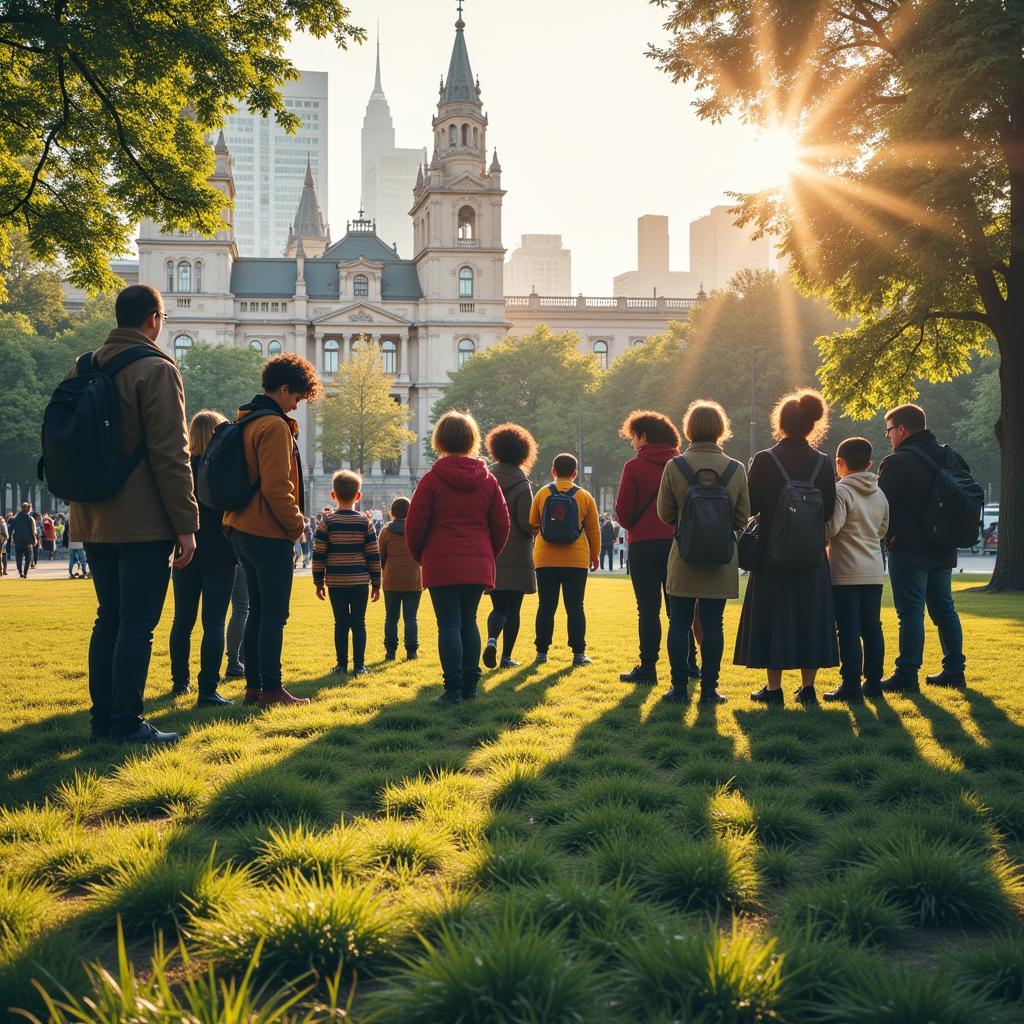In our increasingly interconnected world, it’s easy to use the terms “community” and “society” interchangeably. After all, both conjure images of people coming together, sharing common ground, and interacting in various ways. However, despite their apparent similarities, these two concepts hold distinct meanings crucial to understanding the fabric of human interaction.
 Understanding Community vs. Society
Understanding Community vs. Society
Different Strokes for Different Folks: Defining Community and Society
A community thrives on shared experiences, intimate connections, and a sense of belonging. It’s a group of people united by common interests, values, beliefs, or geographical proximity. Think of your close-knit group of friends, a neighborhood association striving for improvement, or even online forums bustling with individuals passionate about a specific hobby – these are all embodiments of community.
Society, on the other hand, takes a much broader approach. It encompasses a larger population within a defined geographical area, bound together by shared laws, institutions, and cultural norms. It’s the intricate tapestry woven from diverse communities, interacting and coexisting within a structured framework. A city, a nation, or even the globalized world we live in today – these illustrate the expansive scope of society.
Delving Deeper: Key Differences
While both are essential to human existence, the Difference Between Community And Society boils down to a few key factors:
- Size and Scale: Communities are smaller, more intimate groups, while societies are much larger and more diverse.
- Interaction: In a community, interactions tend to be more personal and direct. Society, with its vastness, often relies on more formal institutions and structures for interaction.
- Shared Identity: Communities are often built around a strong sense of shared identity, be it through ethnicity, religion, or common interests. Societies, however, encompass a wider range of identities, sometimes leading to greater complexities and challenges.
Why Does it Matter?
Recognizing the distinction between community and society is not just an academic exercise. Understanding these concepts helps us navigate the complexities of the social world and address societal issues effectively.
For instance, fostering a sense of community is crucial for individual well-being. It provides a sense of belonging, support, and security. On a larger scale, understanding the dynamics of society allows us to create policies and institutions that cater to the needs of diverse populations, promoting equality and justice.
 Community Engagement for Peacebuilding
Community Engagement for Peacebuilding
The Society For Peace: Bridging the Gap
At the Society For Peace, we believe in the power of both community and society to build a more peaceful world. We work to foster understanding and empathy across different cultures, recognizing that a harmonious society thrives on strong, interconnected communities.
Our website provides resources and stories that highlight the importance of community engagement in promoting peace. We believe that by nurturing understanding at the grassroots level, we can create ripple effects that positively impact the wider society.
FAQs
1. Can a community exist within a larger society?
Absolutely! In fact, societies are often composed of numerous, interconnected communities. For example, a society can include religious communities, professional communities, and communities based on shared hobbies, all coexisting within the larger social framework.
2. How can I contribute to building a stronger sense of community?
Start by engaging with your local community! Volunteer your time, participate in local events, and get to know your neighbors. Even small acts of kindness and connection can make a significant difference.
3. What role does technology play in shaping communities and societies?
Technology has revolutionized how we interact, both within our immediate communities and on a global scale. Social media platforms and online forums have created virtual communities that transcend geographical boundaries. However, it’s crucial to use technology responsibly and ensure it fosters meaningful connections rather than isolation.
Need Support? We’re Here to Help!
At the Society For Peace, we believe in a world where peace is possible. If you are looking for resources, support, or want to get involved in our mission, please don’t hesitate to contact us. Call us at 02043854663, email us at [email protected], or visit us at Khu 34, Bắc Giang, 260000, Vietnam. Our dedicated team is available 24/7 to assist you.